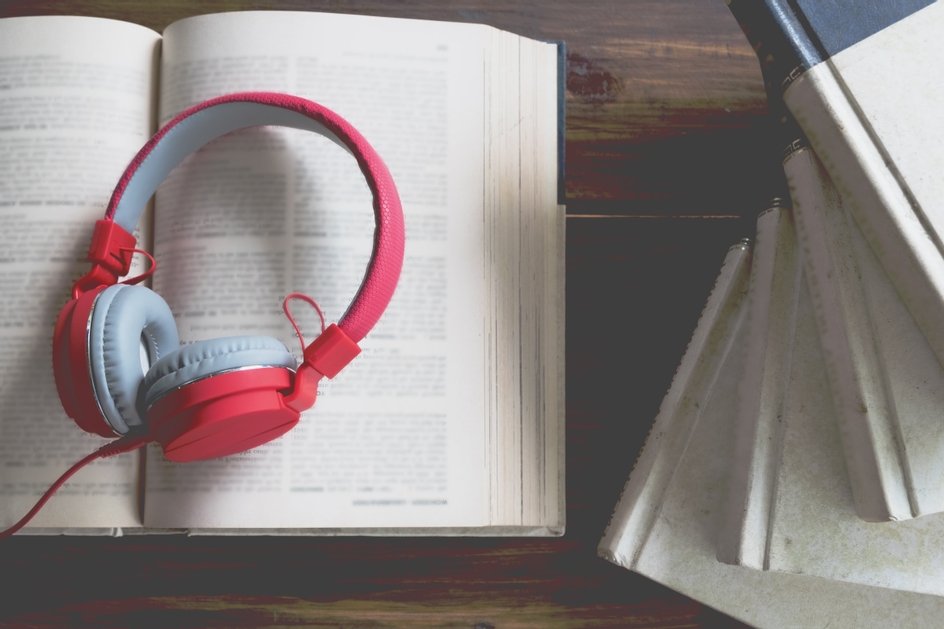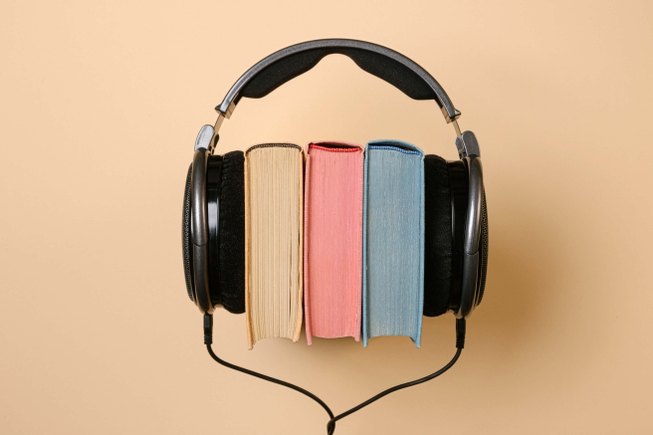To follow my last post about Why It’s Hard to Listen to Non-Fiction Books, I want to talk about why listening to fiction is a far better experience. I came to this conclusion while quarantined the last few months, devouring book after book and noticing several things about how and why I listened.
For context, in the last 7 months, I have listened to 21 days of audio books: the equivalent of 25 Lord of the Rings books. I’m about to get the Audible “Master” rank in just a few months of being a member, and I’m spending more money on books than any other form of entertainment.
Retention
From my past podcast listening I knew that audio didn’t always stick; after all I had nearly a hundred of days listened on my podcast app and could hardly tell you a thing I remembered unless specifically prompted. Why were audio books different? It comes back to my post on non-fiction: listening to complicated news and conversations isn’t always conducive to the audio format, and humans have been telling oral narratives for tens of thousands of years. The books I read were mostly fiction and therefore didn’t encounter the same issues as timely news podcasts.
To add onto that point, if you read kindle books like me, there are some disadvantages to retention. With physical books we often remember parts of the book by the feel of the page near the middle, how it feels to hold it, and a hundred other unquantifiable data points that our body collected. With a kindle we have none of those physical reminders, as it’s all the same. Audio books however recreate that book feeling to a large degree. I can remember several parts of books by where I was driving to, what chore I was doing, or what game I was casually playing. It is very cool, and often induces nostalgia.
Lack of Friction
In the same time 7-month period that I listened to ~25 books, I read 3 kindle books. This was surprising to me, because as a kid I used to stay up late at night reading book after book, and the current situation is a perfect time to get back to that. Unfortunately for me, as well as for many people it seems our attention spans have been greatly shortened by smartphones and social media. Sitting down and reading without distraction is a Herculean task of willpower. To me it also feels transparently like “not-working”; the equivalent of playing a video game. If I’m going to feel like that, I’d rather play the video game.
Conversely listening to a book while doing laundry or driving feels like inserting extra purpose or profundity into a menial task. It is just so much easier to put a book on and listen passively than sit down to read actively. That’s why, despite my prodigious listening time, I hardly felt like I sacrificed anything.
When developing a product, most tech companies now are focused on “reducing friction”. Basically, making it as easy for a customer to buy or use a product as possible. Audiobooks are the closest thing we’re going to have to a zero-friction product in the book space for a very long time.
Time
People often have to make a decision between “reading the book” or “watching the movie”. Most of the time this isn’t a decision at all, and everyone just watches the movie. It’s obvious; you get to watch acting, action, costumes, set design, and hear dialogue with your time investment being 10x lower. The disadvantage to the movie is that you miss out on a huge amount of content that’s covered in the books.
Audiobooks bridge the gap between movies and books. Every single detail included in the book is included in the audiobook, and the time investment is also reduced. Think about it; reading a book is 10+ hours of active attention. Watching a movie is 2 hours of active attention. Listening to a book is 15 hours of passive attention. Depending on your day, that passive time might be far more available than active time. If you can only watch a 2 hour movie on the weekends, but can listen a few hours a day to a book while commuting or doing chores, you might be able to get through more books than movies!
I also have a little trick for speeding things up: listen to most of the book at the fastest speed you can manage. That sounds obvious but there’s more; when the climax of the story is around the corner, drop the speed down to something closer to 1x. I listen to the majority of the book at 1.75x then drop it down to 1.25x. There are many good reasons to do this. First, the climax is the fastest moving part of most books; it’s where events are rapidly unfolding, and the protagonist is in a critical struggle. You need to slow it down to fully understand what’s going on. Second, the majority of most books is slow buildup, and going by it quickly is still easy enough to follow. Third, is that it allows you to savor the climax more, and because the climax is the best part of most books, slowing down allows for maximum enjoyment.
Acting
Continuing with the movie’s comparison, movies just have more mediums involved than books. When you have the opportunity to see a world realized by a director, it is very tempting when the alternative is creating it in your own head. This is why fan-art is such a big industry online now; people want to see the character they just read about in a book. Audiobooks give you some of that with voice acting.
It’s pretty simple; instead of imaging how a character speaks, you hear the narrator act it. It becomes ingrained into their character. You get emotions, pronunciations, accents, and much improved comedy. There’s a couple books that do this amazingly well.
The best example is World War Z by Max Brooks. World War Z is an expansive zombie apocalypse story with a focus on the realistic political response by governments. Best of all, the predicted responses to a zombie virus in the 2006 book are eerily similar and prescient in the current pandemic making for incredible reading. However, the audiobook takes the experience to another level with a full star-studded cast of voice actors. Getting the perspective of a Chinese doctor, American businessman, Russian soldier, Japanese hacker and many more international actors with real accents and vocal ticks made every chapter feel unique and realistic.
World War Z is a book that was made for audio and Brooks followed it up with another brilliant full cast audiobook titled Devolution. Other amazing audiobooks include American Gods by Neil Gaiman, The Wheel of Time series by Robert Jordan, and The Lord of the Rings trilogyby JRR Tolkien (specifically the Phil Dragash version). American Gods has an amazing cast with actors playing “gods” from Ireland to India. The Wheel of Time makes great use of the greatest voice acting duo in Michael Kramer and Kate Redding to add discernable differences to the myriad of characters in the series. The Phil Dragash Lord of the Rings is something that is unfortunately hard to find due to copyright, but once found it is an incredible experience. Doing something I’ve never seen before in an audiobook, Dragash takes the Howard Shore soundtrack from the movies, several lines performed by the actors in the movie (some that were not even in the theatrical cut), as well as sound effects of swords, horses and more to make what amounts to a movie in audio format.

It Makes it Easy to Read Again
Audiobooks have really changed my life. Being the kid with the flashlight underneath the covers was always something I wish I could go back to but with our current media and technological environment been unable to. With the drive to “be productive” and the temptation of a notification, actively reading a book is just so hard to start, that most of us just fail whenever we try. Audiobooks have allowed me and many others to restart our old passion. Getting back into fiction, and finding amazing stories again is something I want everyone to experience like I have.



